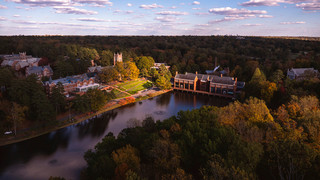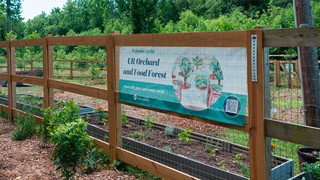

Research Opportunities
Faculty and students across the School of Arts and Sciences, the Jepson School of Leadership, the Robins School of Business, the School of Professional and Continuing Studies, and the School of Law are actively engaged in sustainability research.
To evaluate if research is about or related to sustainability, the Office for Sustainability looks for research that addresses key sustainability concepts such as environmental management, governance, cultural heritage, placemaking, decolonization, biodiversity, food, equity, justice, human rights, well-being, development, land use, policy, ecology, climate, energy, nature, resilience, urbanization, air quality, pollution, globalization, identity, human health, and green technologies.
---
2021 to 2023 Sustainability Research Accomplishments
- 83 Professors conducting sustainability research
- 23 Departments conducting sustainability research
- 146 Published articles and books on sustainability and sustainability-related topics
---
Students interested in sustainability research can apply for academic year and summer research funding.
Faculty interested in funding research can find more information through the grants page.

